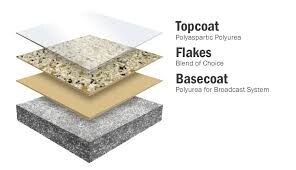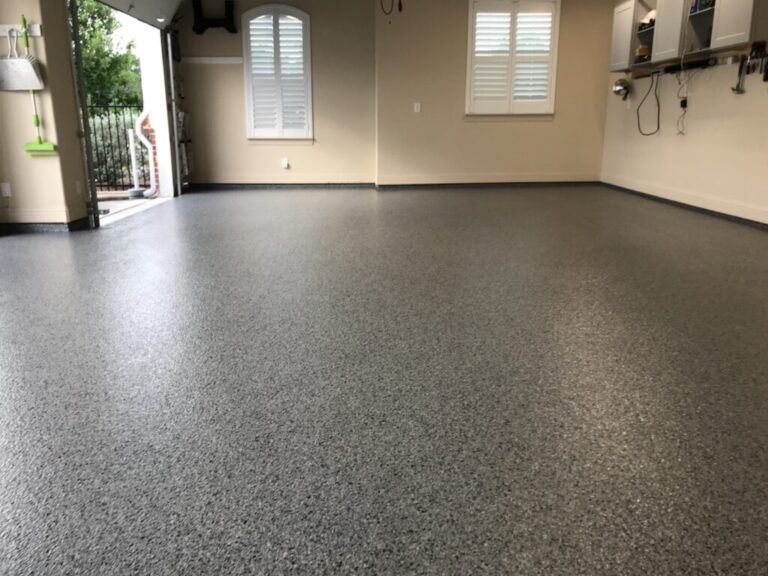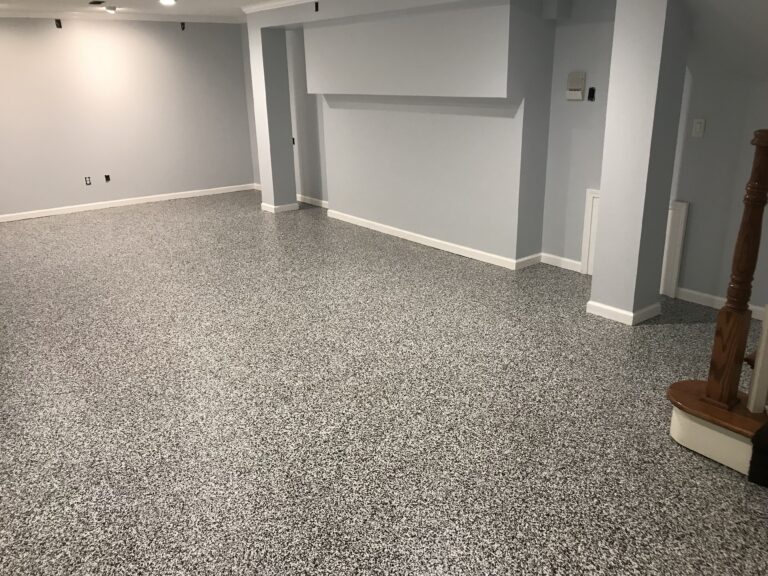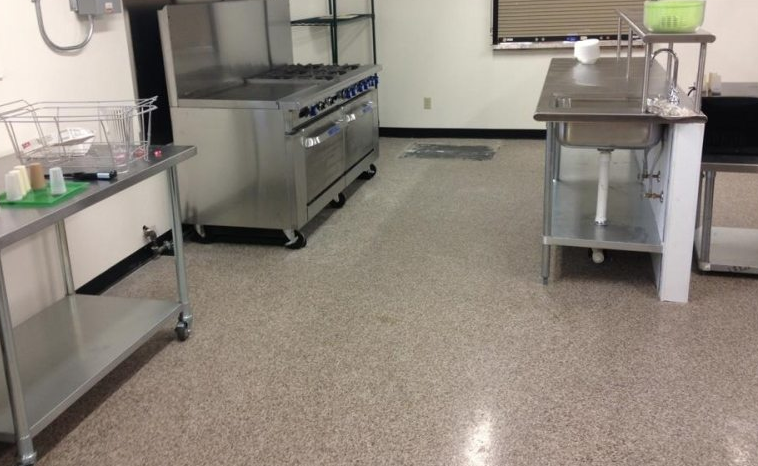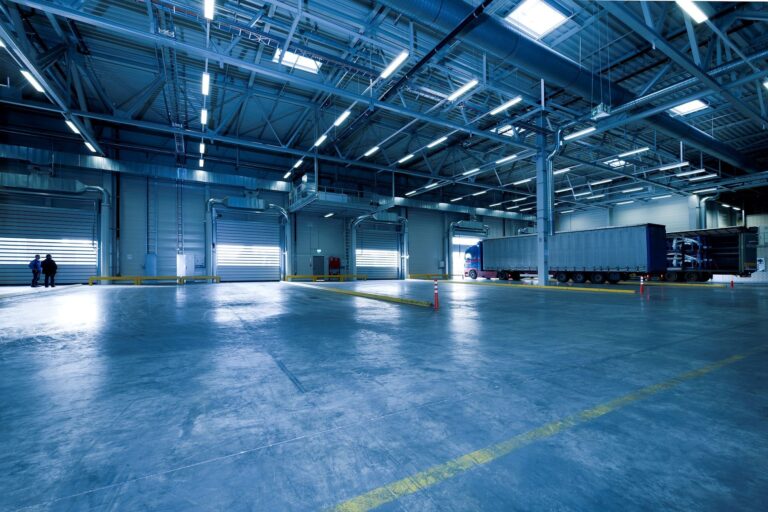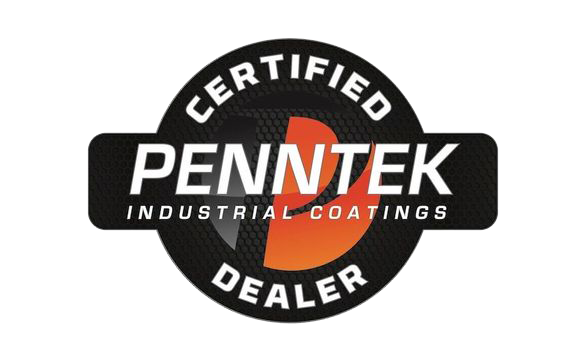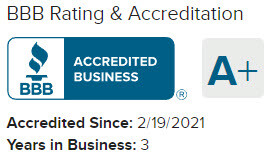- Coatings
CONCRETE COATINGS
GARAGE FLOOR COATING
- About
- Contact
What Are The Pros and Cons of Concrete Coatings?
Understanding Different Types of Concrete Coatings
Whether you are looking to spruce up a tired outdoor patio or you are refreshing the inside of your home, concrete coatings provide long-lasting protection for your surfaces. But with so many different types of concrete coatings on the market, it can be difficult to know which one is right for your project. Let’s take a look at the pros and cons of four popular formulas: polyurea, polyaspartic, epoxy, and acrylic.
Polyurea
Polyurea is a durable coating that can be applied in multiple layers for maximum protection. It’s also resistant to scratches and chemical spills, making it an ideal choice for both indoor and outdoor environments. Polyurea in combination with our multi-layer vinyl chip system is the ultimate floor-coating solution.
Polyaspartic
If you’re looking for fast drying times without sacrificing durability, then polyaspartic might be your best bet. This water-based formula adheres quickly to vinyl chips and cures within just a few hours. Our formula is UV resistance which ensures that your floor colors will never fade or turn yellow.
Epoxy
Epoxy provides a strong bond between the concrete surface and the coating itself and like polyaspartic top coats, is ideal for high-traffic areas where extra durability is needed. The downside? Epoxy can be tricky to apply if not done correctly because it requires precision when mixing components together. As such, hiring a professional who knows how to handle epoxy correctly is essential in order to ensure optimal results.
Acrylic
Last but not least is acrylic coating—the most affordable option out there but not as effective at providing adequate protection from moisture and wear-and-tear damage. Acrylic coatings are easy enough for DIYers but should still be performed by someone who knows what they are doing in order to guarantee optimal results over time. The only real downside? Acrylic won’t last as long as some of the other options listed here; however, if reapplication often isn’t an issue then acrylic may be just what you need!
Conclusion: All four formulas have their own unique set of pros and cons depending on your individual needs and preferences – so it’s important that you do your research before settling on any one option! Polyurea offers maximum protection and only takes 24 to dry; polyaspartic also dries quickly in combination with polyaspartic; epoxy provides comparable strength but must be handled carefully when applying; and acrylic is easy enough for DIYers yet won’t last as long as some other options out there. No matter which formula you choose though – make sure you hire a professional who knows what they’re doing in order to ensure optimal results! With the help of an experienced contractor/installer – our TruTech Concrete Coatings can provide years worth of satisfaction and will transform that dull gray, cracked space into a usable floor with a 15-year warranty!

